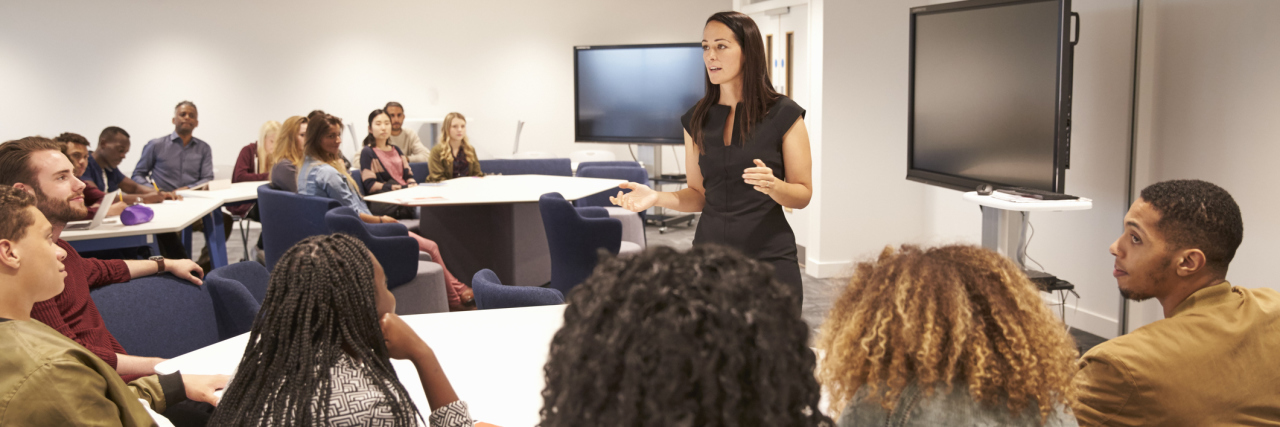9 Tips For Getting Through School With a Disability
Being a student can be a demanding job. You have to wake up early, get to school on time, carry a load of supplies and books, pay attention to the content, and socialize. It’s a full-time gig. It’s no easy task, especially if you have a disability.
The pressure of engaging in everyday activities while processing your pain levels is very difficult. It can make it next to impossible to get through the day, let alone concentrate on the material at hand. There are a few things I’ve found to make this experience a little easier:
1. Always carry all your medication on you. You may feel as if it is a burden to carry around all your pills every day. Who wants to carry all those bottles all day? Plus, there are some days you don’t need to take them all, so why add to the weight of the extra pills? Yeah, but what if you need it? It is a lot better to keep them in your bag, locker, or car than to leave them at home.
2. Take your medication! It is important to carry your medications, but there is no point in doing so if you don’t use them. If you are able to recognize signs and symptoms of a flare-up of any sort, take your medication. Preventative care is important to get through the day. Some people feel judged (and are judged) when they are seen taking meds, but this is about your health, not about other people. It is much harder to battle the symptoms and the flare-ups once they have rendered you non-functional.
3. Let a friend and a professor/teacher know if you have any disabilities that interfere with your learning, or that require you to leave the room abruptly. Always keep someone in the loop in case you need help at any given point. The more you help yourself, the more they can help you.
4. Contact the administrative office and/or your professors regarding accessibility. Schools have accessibility learning offices or protocols in place for students who are disabled. The services include sharing notes and recorded lectures, as well as extended test times. Accommodations can be set up as needed.
5. Ask your professor if you can record the lecture if you prefer to do it on your own.
6. If it helps, doodle while listening to the lecture. Studies show that doodling helps the thinking process by connecting thoughts. Doodling is also a great replacement for words for those who are more visual learners. Replacing certain words with drawings that better explain a concept, or that are a better representation of the thought in question than a word, can be more beneficial to learning than writing.
7. Eat! Don’t skip lunch. Try to eat healthy snacks between classes if possible. It’s important to keep your brain and body fed so you have enough sugar and protein to get you through the day. Most people feel they don’t have time to stop and eat food, but you will only be more sluggish if you do not give yourself the break and nutrition your body craves.
8. Take breaks throughout the day to recharge. It is OK to sit alone quietly. It is OK to read a book during your break. It is OK to take a nap. It is OK to socialize. It is OK to work on your homework/pending work during your break if that is what you need to do. Do whatever helps your day get easier.
9. Do not compare. Do not look over to your left or your right to see what the person next to you is doing, or how far ahead or behind they are relative to you. They are not you, and you are not them. Everyone is different and has their own learning style and pace. This not only causes unrealistic expectations of yourself and others, but also depletes you of energy you could be using for other things. Comparison can create a snowball effect of depression and anxiety.
Self-care is number one. It is the most important thing you can do for yourself and for others. Focusing on what you need and having a support system set up in school is not only crucial to advancing in your career, but also a great tool to help you function with your disability. Eventually, things can become second nature and you’ll learn how to cope with similar situations outside of school.
Hope everyone returning to school finds this helpful!
We want to hear your story. Become a Mighty contributor here.
Thinkstock photo by Monkey Business Images.

